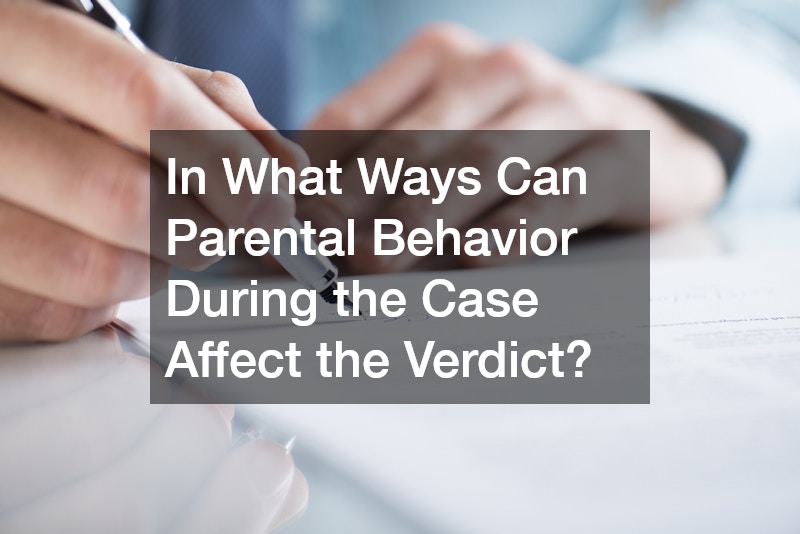Child custody battles can be emotionally overwhelming and legally complex for parents navigating the process. Understanding why some parents lose their cases can offer valuable insights and guide others to more favorable outcomes. This article delves into common mistakes made by parents during custody disputes, the importance of preparation, the impact of parental behavior, and the critical role of legal representation. With informed strategies, parents can better position themselves for success in securing custody. We’ll explore these critical aspects through insights from experienced child custody lawyers to delineate how to avoid pitfalls and present a strong case.
What Are the Common Mistakes Parents Make in Child Custody Cases?
In child custody disputes, parents often unwittingly undermine their cases through a series of common mistakes. One of the most critical errors is poor documentation.
Parents may fail to keep thorough records of significant interactions or issues that could support their case. By neglecting to document incidents or communications accurately, they lose valuable evidence that might sway a judge’s decision in their favor. Such lack of attention to detail can suggest to the court that the parent is disorganized or disinterested in the child’s welfare.
Emotional instability during the proceedings also poses a significant challenge. Child custody cases can be emotionally charged, leading parents to display anger or frustration, especially when dealing with their former partners in and out of the courtroom. Uncontrolled emotions can portray a parent as volatile or unfit, casting doubt over their ability to provide a stable environment for the child. Parents need to exhibit composure and control, focusing on the child’s best interests as perceived by the court.
Misunderstanding legal procedures and timelines is another prevalent issue. Parents often enter the legal system with limited knowledge of necessary protocols, filing deadlines, or the implications of their actions. Missing a court date or failing to respond adequately to legal motions can be detrimental. These procedural missteps can lead the court to question a parent’s seriousness and commitment or, worse, lead to judgments being made by default.
How Does Lack of Preparation Influence the Outcome of Custody Hearings?
Insufficient preparation is a major contributor to adverse outcomes in child custody cases. Parents may underestimate the importance of gathering and presenting evidence, which is vital to support their claims for custody. Critical evidence might include documentation of the child’s needs, parenting capabilities, or material proving inappropriate behavior by the other parent. Without this preparation, parents may struggle to substantiate their arguments, leaving the court with an incomplete picture of the family dynamics.
Another aspect of preparation involves understanding what types of evidence and witness testimonies will be persuasive in proving one’s case. Parents often do not consult with experts or character witnesses who can testify to their parenting skills or the child’s best interests. Failing to include such testimonials can significantly impact the judge’s perspective, as third-party validation can be a compelling factor in custody decisions. Parents who neglect to compile such testimony may find their arguments seem less credible or substantiated.
The lack of strategic planning also comes into play. Parents must enter the courtroom with a clear legal strategy, devised with an understanding of the custody laws and standards applied by the court. Failing to formulate a clear plan of action, often due to lack of legal knowledge or poor consultation, can lead to disjointed arguments that weaken a parent’s case. Success in custody battles often hinges on how well-prepared a parent appears in laying out their case logically and coherently.
In What Ways Can Parental Behavior During the Case Affect the Verdict?
Parental behavior during custody proceedings can significantly influence the court’s decision-making process. Judges scrutinize the conduct of both parents, both in and out of the courtroom, to assess who can offer the most stable and nurturing environment for the child. Disparaging the other parent or making derogatory remarks can backfire, painting the instigator in a negative light and raising concerns about co-parenting ability.
Interactions with the former partner, especially in the presence of the child, are closely monitored. Displays of hostility or manipulation in these interactions can indicate to the court that a parent may not be prioritizing the child’s best interests or may be trying to alienate the child from the other parent. Courts look favorably upon parents who demonstrate positive co-parenting behavior and prioritize open, respectful communication, thus supporting the child’s emotional well-being.
The demeanor exhibited in the courtroom is equally critical. Appearing respectful and earnest before the judge denotes reliability and seriousness about parenting responsibilities. Conversely, those who exhibit aggression or apathy risk being perceived as unsuitable custodians. Showing readiness to cooperate and adapt, even in difficult circumstances, can strongly favor a parent’s case by emphasizing maturity and commitment to a constructive resolution.
Successfully navigating a child custody case requires avoiding common pitfalls and being thoroughly prepared with robust legal strategies. Recognizing the inherent challenges and seeking guidance from experienced child custody lawyers can make a pivotal difference, ensuring the child’s best interests are at the forefront of any custody decision.
.
